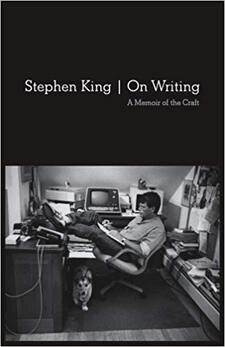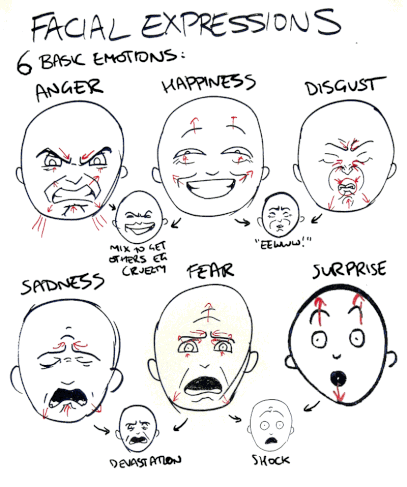|
Early into the first draft of The Gatewatch I had a minor crisis of identity. Who was I to assume that I could write a book worth reading and did I recall enough proper grammar to pass for a 'real' writer? To quell my doubts I began devouring writing advice by respected authors while I pressed on with the story. Who was I to assume that I could write a book worth reading I first reread an excellent essay I encountered in university, George Orwell's Politics and the English Language. His pointed message renewed my determination to pursue and eliminate pretentious diction, meaningless words, and dying metaphors. As a writer of fantasy, a genre too often plagued by these particular issues, I found it necessary to thoroughly purge what I had written in my rough draft before proceeding with the story.
While discussing dialogue, Stephen King suggests that descriptors such as shouted, whispered, screamed, roared, wailed, moaned, and whimpered should be used extremely sparingly, if at all. Even worse are phrases like whispered quietly, screamed furiously, or moaned woefully. The reason, of course, is that if you have not made clear from the context of the conversation what the tone of the dialogue is then using a phrase like ‘he shouted angrily' is profanely lazy. King suggests instead that writers invest more energy describing their red-faced, tight-fisted, jaw-clenched characters leading up to the dialogue so that readers can infer their tone from context alone. Stephen King suggests that descriptors such as shouted, whispered, screamed, roared, wailed, I took this advice literally and removed any word for dialogue besides said from my rough draft. Though I meant it to be more of a writing exercise than a rule I soon found that my scenes pulsed with an energy that they lacked before. I swore from then on never to use a phrase such as 'he shouted angrily' or 'she whispered tenderly' and to this day I have not used any attribution other than said. I swore from then on never to use a phrase such as 'he shouted angrily' or 'she whispered tenderly' For anyone willing to accept the challenge of using only said for dialogue I feel compelled to offer some support. One area of knowledge that I had a decent intuition about but failed to study closely before adopting this rule was the science of body language. Facial expressions and body posture can do more to communicate a character’s state of mind than a paragraph stuffed full of emotive descriptors. Ekman's Six Basic Emotions (Credit: Adam Murphy) These traits are so consistent that psychologist Paul Ekman categorized expressive facial movements into six basic emotions: anger, disgust, fear, happiness, sadness, and surprise. These expressions are performed unconsciously and are nearly universal. I believe as writers we can reverse-engineer this categorization to craft physical descriptions that are organic and intuitive for readers to interpret. I believe as writers we can reverse-engineer this categorization to craft physical descriptions For example, in a scene of courtly intrigue one might expect a line such as this: “Damned fool,” Darius snarled disgustedly. I hope you will agree that this line is particularly awful. The word snarled falls flat as it is a gross exaggeration; animals snarl but people do not. It is also confusing as a snarl is an expression of aggression in animals, not of disgust. As if all this was not enough to push this line into irredeemable mediocrity, the use of the word disgustedly shows that the author had neither the time nor the energy to show how Darius felt but instead cut a quick corner by stating it directly. The word 'snarled' falls flat as it is a gross exaggeration; animals snarl but people do not. It is also confusing as a snarl is an expression of aggression in animals, not of disgust. To rework this line I would first identify the basic emotion that the character is experiencing, in this case disgust. Disgust has been identified as one of the six basic emotions and is characterized by distinct positioning of the eyebrows, nose, and mouth. By utilizing these facts we could, perhaps, redeem the line as follows: Darius furled his brow and wrinkled his nose. “Damned fool,” he said. In this case the word used for dialogue attribution is not hijacked to reveal Darius’ state of mind; it simply does its job of identifying who is speaking. In fact, the actual word disgust does not appear in the text at all. Through the description of Darius’ face and our own experience with facial gestures we, as readers, know exactly how Darius is feeling without being whomped over the head with a direct description. Our imagination is allowed to fill in the emotional context, and that is a far more powerful tool than words on a page. In this case the word used for dialogue attribution is not hijacked to reveal Darius’ state of mind; Further, we can easily adjust this line to convey other emotions by altering Darius’ facial expressions. If instead of wrinkling his nose Darius flared his nostrils we would know that he is feeling anger (another one of the six basic emotions) instead of disgust. Again, if he had opened his mouth and raised his eyebrows we would infer that he is surprised instead of angry or disgusted. If instead of wrinkling his nose Darius flared his nostrils we would know that he is feeling anger Though it is sometimes necessary to use said to identify the speaker I would refine the line one step further by eliminating the dialogue attribution altogether and communicating the source of these words through their position on the page like this: Darius furled his brow and wrinkled his nose. “Damned fool.” Though some might disagree with this last step, I have taken to doing this whenever possible. By avoiding dialogue attributions other than said, and even using said only when necessary, I have been able to craft lively dialogue between characters that is not hindered or burdened by unnecessary descriptors. In other words, some things really are better left (un)said. For sage advice on the craft of writing Joshua recommends Stephen King's On Writing: A Memoir of the Craft.
0 Comments
|
AuthorJoshua Gillingham is an author, editor, and game designer from Vancouver Island, Canada. Archives
April 2022
Categories
All
|




 RSS Feed
RSS Feed
